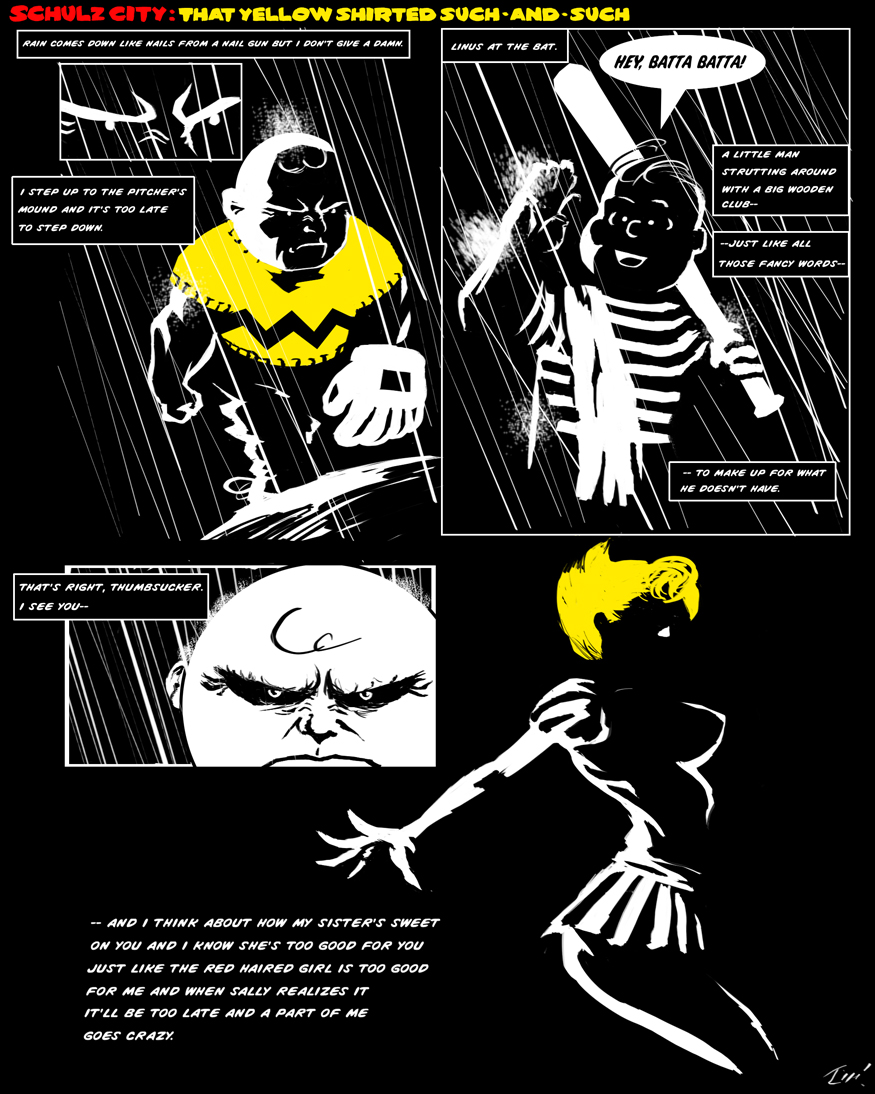Need I emphasise, here be spoilers?
I enjoyed it. And I didn’t miss the squid.
It could have be so much worse. Whatever you say about Zack Snyder not being a great director – and frankly, he really isn’t – his sheer love for every frame of the book overcame his shortcomings.
Malin Ackerman didn’t suck anywhere as much as rumoured (after all, Juspeczyk isn’t exactly the deepest of characters in the first place). Though Jeffrey Dean Morgan’s Comedian was good, he wasn’t quite the powerhouse I’d hoped for. Jackie Earl Haley’s Rorschach was, however… truly splendid work, and if there was any justice he’d be a shoo-in for next Best Supporting Actor Oscar. (Well, maybe if he dies, he’d get it. Too soon? Tough.) Also big points for Patrick Wilson in the thankless role of Dan – subtly handled, and the transform from pudgy dude to combat machine worked for me. (One criticism that I sort of agreed with is that all the heroes seem to be super-powered – able to kick through walls, snap arms with a light punch etc – which kind of reduces the impact of Veidt’s bullet-catching act. But the fights sure were pretty.) It was also great to see old-time SF veterans like Matt Frewer, Stephen McHattie, Rob LaBelle and (briefly) Alessandro Juliani turn up. (And Apollonia Vanova, who played Sillhouette, was the loveliest woman in the movie. Which is saying a lot.)
Some of the make-up and FX were a little slack, but overall the impression was good. Doctor Manhattan’s Big Blue Cock wasn’t that distracting (though there’s probably a paper to be written on the semiotics of him being circumcised…).
Yes, using Happy Uncle Len for the sex scene was a dumb idea. The use of ‘Everybody Wants to Rule the World’ in the background was crass – and though enjoyable, using Philip Glass as the music for building a ship made of, er, glass, lacked subtlety. And I missed hearing Elvis Costello’s ‘Comedians’ and really didn’t need All Along the Watchtower (unless of course Veidt is the Last Cylon…) The actual score (as opposed to the plundering of the music archive) was well-done.
After checking with IMDB I found my suspicion that one of Veidt’s TV screens was showing (among other favourites as Mad Max 2, Rambo 2 and Generic Lesbian Sex Scene no.5) Altered States was correct… nice touch!
Also I found after reading a couple of interviews with the screenwriters, it seems Alan Moore (described memorably as ‘the Dumbledore of comics’ by Daily Grail recently!) actually saw and (whisper it) approved of an early draft. (Just wondering – if Alan’s the Dumbledore of comics, what does that make Grant Morrison? Snape?)
Another criticism I agree with is that the overall sense of menace and sheer insanity of the Cold War mentality wasn’t really brought across. It was portrayed, but felt flat – and I’m a cold war kid, so I can’t imagine what you young whippper-snappers who were born afterwards thought. (For the record, using ’99 Luftballoon’ in the soundtrack as ironic counterpoint doesn’t fucking count, m’kay?)
That ending… worked. Let’s be honest, Moore’s not great at endings, especially in his earlier books. The solution they came up with for the resolution made sense, took much less set-up than the squid and had about the same punch. (Interesting to note the strategic use of images of the World Trade Centre throughout – especially at the end, overlooking the New York rebuild.)
Needless to say, I am looking forward to watching the Director’s Cut, with Black Freighter put in etc – partly ‘cos my son (who just read Watchman and is a bit of a purist, like many recent converts) is waiting for the long version.
